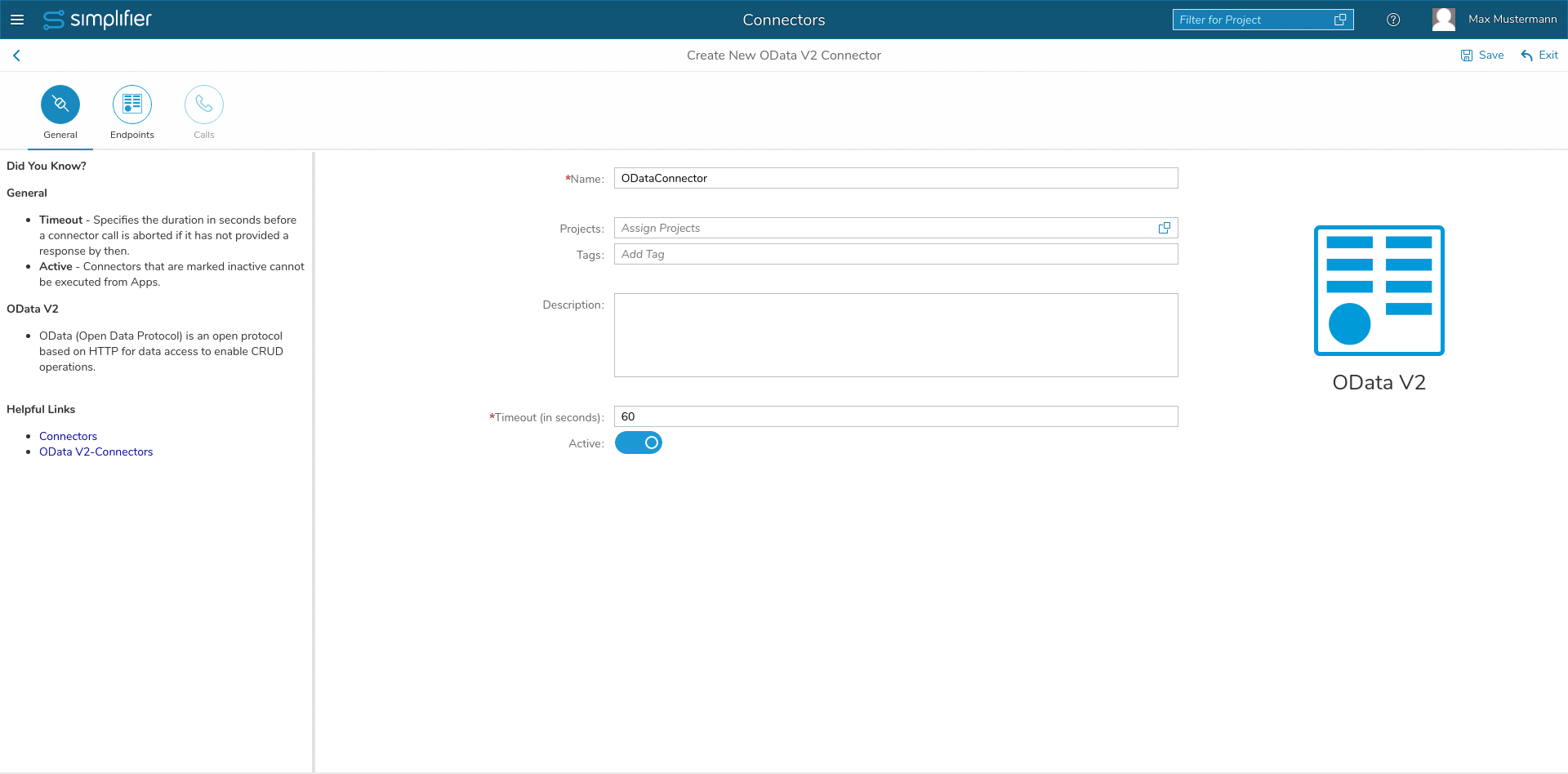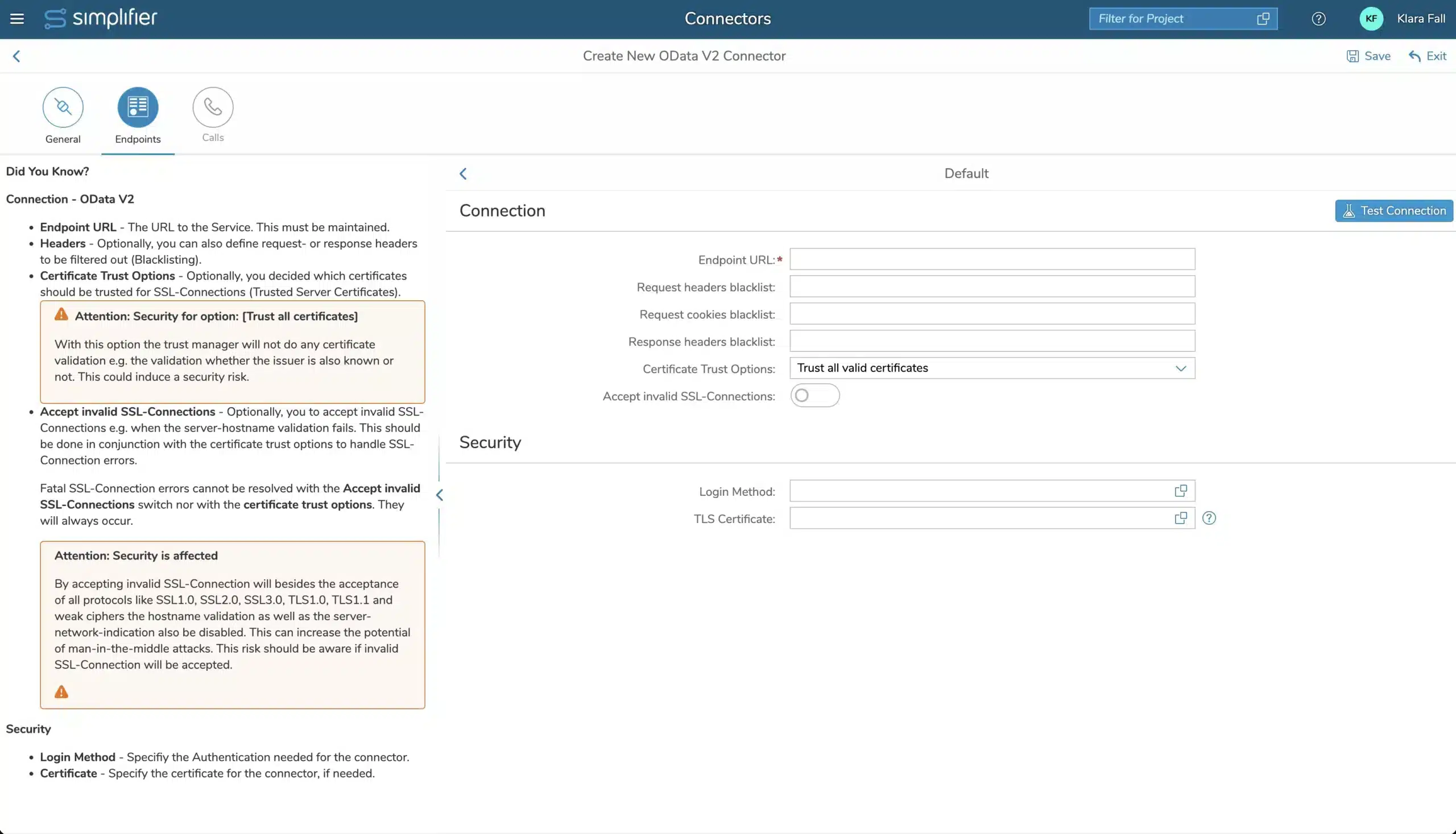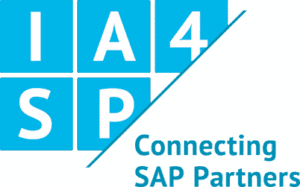OData (Open Data Protocol) enables the creation of REST-based data services that allow resources identified by Uniform Resource Identifiers (URIs) and defined in a data model to be published and edited through the use of HTTP messages by Web clients.
It allows flexible access to the databases and to create, read, update and delete (CRUD) valid data on the web. OData is able to provide consistent semantics for data exchange in client-server communication.
Create a new connector and select OData V2 as a connector type. Within the specific data on the Endpoints tab, define the endpoint. Optionally, you can also define request headers to pass through and response headers to pass through.
Connection
The following settings are available per endpoint:
| Parameter | Description | Default Value |
| Endpoint URL | URL to OData v2 Endpoint | n/a |
| Request headers blacklist | Headers that should be filtered / removed in the Request from Simplifier to OData Endpoint | n/a |
| Request cookies blacklist | Cookies that should be filtered / removed in the Request from Simplifier to OData Endpoint | n/a |
| Response headers blacklist | Headers that are included in the response but should not sent to the client | n/a |
| Certificate Trust Options |
Trust all Certificates means Simplifier accept also invalid Certificates
Trust only choosen Certificates means that only the assigned Certificates in the Connector Endpoint are allowed Trust all valid Certificates means that only valid certificates are accepted Trust all valid and own Certificates means that only valid certificates are accepted and in addition also certificates that are assigned to the Connector Endpoint |
Trust all valid Certificates |
| Accept invalid SSL-Connections |
Optionally, you to accept invalid SSL-Connections e.g. when the server-hostname validation fails. This should be done in conjunction with the certificate trust options to handle SSL-Connection errors | false |













